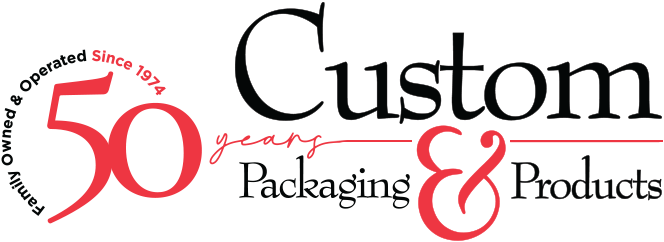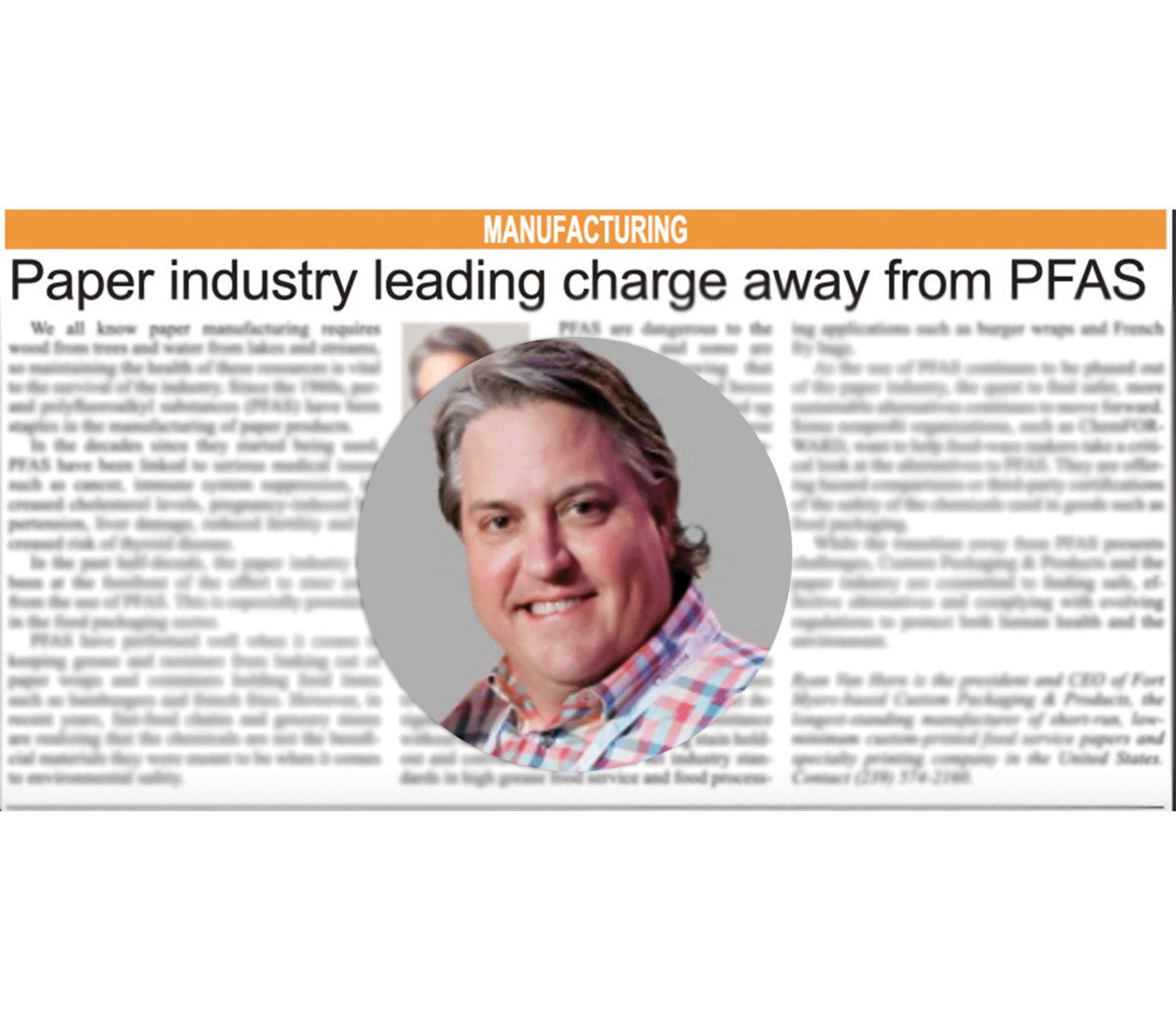This was originally published in SWFL Business Today’s September 2024 Manufacturing Issue.
We all know that paper manufacturing requires wood from trees, and water from lakes and streams, so maintaining the health of these resources is vital to the survival of the industry. Since the 1960s, per- and polyfluoroalkyl substances (PFAS) have been staples in the manufacturing of paper products.
The Problem with PFAS
In the decades since they started being used, PFAS have been linked to serious medical issues such as cancer, immune system suppression, increased cholesterol levels, pregnancy-induced hypertension, liver damage, reduced fertility and increased risk of thyroid disease. In the past half-decade, the paper industry has been at the forefront of the effort to steer away from the use of PFAS. This is especially prominent in the food packaging sector.
PFAS have performed well when it comes to keeping grease and moisture from leaking out of paper wraps and containers holding food items such as hamburgers and french fries. However, in recent years, fast-food chains and grocery stores are realizing that the chemicals are not the beneficial materials they were meant to be when it comes to environmental safety.
PFAS are dangerous to the environment, and some are toxic. Studies showing that PFAS in paper wraps and boxes can seep into food have piled up in recent years. Because of those concerns, many food companies are switching from single-use containers and wraps made with PFAS to packaging without these “forever chemicals” as ingredients.
Alternative Coatings & Uncoated Paper
Among the alternatives to PFAS, the paper industry has turned to such substitutes as bamboo or palm leaf, biowax- or clay-coated paper, seaweed (biodegradable and edible), polylactic acid (PLA) coated paper and cellophane. Here at Custom Packaging & Products our paper comes to us from suppliers that use an uncoated paper designed to deliver a high level of grease-resistance without the use of PFAS. Its outstanding stain holdout and converting performance set industry standards in high grease food service and food processing applications such as burger wraps and french fry bags.
Moving Forward
As the use of PFAS continues to be phased out of the paper industry, the quest to find safer, more sustainable alternatives continues to move forward. Some nonprofit organizations, such as ChemFORWARD, want to help food-ware makers take a critical look at the alternatives to PFAS. They are offering hazard comparisons or third-party certifications of the safety of the chemicals used in goods such as food packaging.
While the transition away from PFAS presents challenges, Custom Packaging & Products and the paper industry are committed to finding safe, effective alternatives and complying with evolving regulations to protect both human health and the environment.
About the Author

Ryan Van Horn is the President and CEO of Fort Myers-based Custom Packaging & Products, the longest-standing manufacturer of short-run, low-minimum custom-printed food service papers and specialty printing company in the United States.

